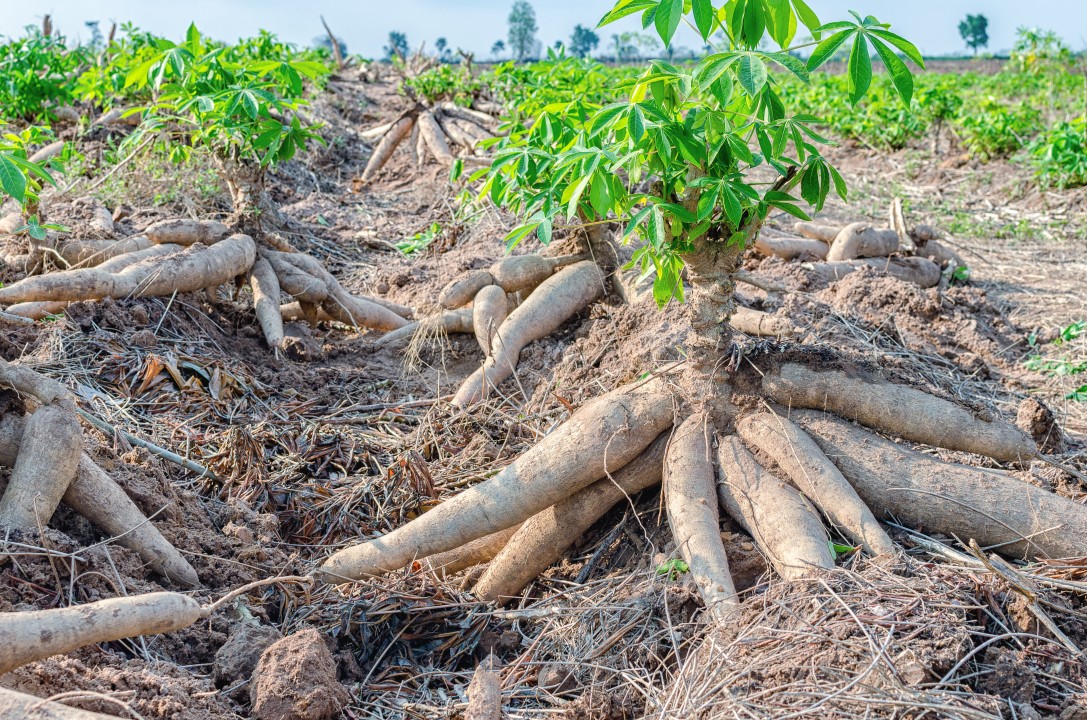
Grow Your Wealth with Cassava: The Sustainable Investment Choice!
Nigeria’s cassava production is a thriving sector that plays a crucial role in the country’s agricultural landscape. As one of the world’s largest cassava producers, Nigeria offers abundant opportunities for investors to tap into this versatile crop’s potential. In this article, we will explore the competitive landscape, recent trends, and the untapped investment opportunities that await those looking to invest in Nigeria’s booming cassava industry.
Competitive Landscape and Recent Trends
Cassava production in Nigeria is widespread, with significant variations in production across different states. Key cassava-producing states include Imo, Anambra, Kogi, Cross River, Enugu, Ogun, Ondo, Taraba, Benue, Delta, and Edo. While these states hold the highest production volumes, there is ample room for smaller-scale cultivation throughout the country.
In recent years, Nigeria’s cassava processing industry has witnessed a positive shift towards value addition and product innovation. Processors are exploring new product lines such as cassava chips, snacks, beverages, and cassava flour for industrial usage. These innovations not only enhance the cassava supply chain but also open up exciting new market prospects, both locally and internationally.
Investment Opportunities to Explore
Export Trade: The export market for cassava and its derivatives presents a lucrative opportunity. Nigeria’s position as a major cassava producer can be leveraged to tap into international markets. By meeting quality standards, complying with regulatory requirements, and fostering strong trade relationships, Nigerian cassava products can gain a competitive edge globally. Exploring opportunities in regional markets within Africa and beyond, such as Europe and Asia, can lead to increased export earnings and foreign exchange inflows.
Value Addition and Processing: Investing in modern processing technologies, equipment, and infrastructure can elevate the quality, diversity, and marketability of cassava products. Developing value-added products like cassava flour, starch, chips, ethanol, and animal feed can unlock significant economic potential and cater to evolving consumer preferences.
Integration of Technology and Innovation: Adopting technological advancements and innovative practices in cassava cultivation and processing can boost productivity and efficiency. Introducing improved farming techniques, precision agriculture methods, and mechanization can increase yields and reduce post-harvest losses, leading to improved profitability.
Stakeholder Collaboration and Partnership: Enhancing collaboration among various stakeholders in the cassava sector is vital for future growth. Partnerships between research institutions, farmers’ associations, processors, government agencies, and private sector players can facilitate knowledge sharing, technology transfer, and best practices dissemination, creating a conducive environment for investment and policy support.
Processing Technology Upgrades: Investments in contemporary processing technologies, such as automated drying equipment and mechanized peeling and chipping machines, can improve productivity and product quality while reducing post-harvest losses.
Supply Chain Infrastructure: Developing robust supply chain infrastructure, including cold chain logistics, transportation networks, and storage facilities, can significantly reduce post-harvest losses and ensure year-round access to high-quality cassava, making it an enticing area for investment.
Value-Added Product Development: By investing in research and development of value-added cassava products like gluten-free flour, modified starches, biofuels, and biodegradable packaging materials, companies can expand their market reach and generate higher revenue.
Renewable Energy: Cassava processing enterprises can embrace sustainability by investing in renewable energy projects like biogas plants or biomass power generation, which not only benefits the environment but also enhances the industry’s overall sustainability.
Nigeria’s cassava production offers a wealth of untapped investment opportunities across the value chain. As the cassava sector continues to evolve, those who seize these opportunities can contribute to economic development while reaping the rewards of a burgeoning market. For expert guidance and support in exploring these investment possibilities, we encourage you to reach out to our bank’s dedicated team of agricultural investment specialists. Together, let’s unlock the full potential of Nigeria’s cassava production and cultivate a fruitful future.